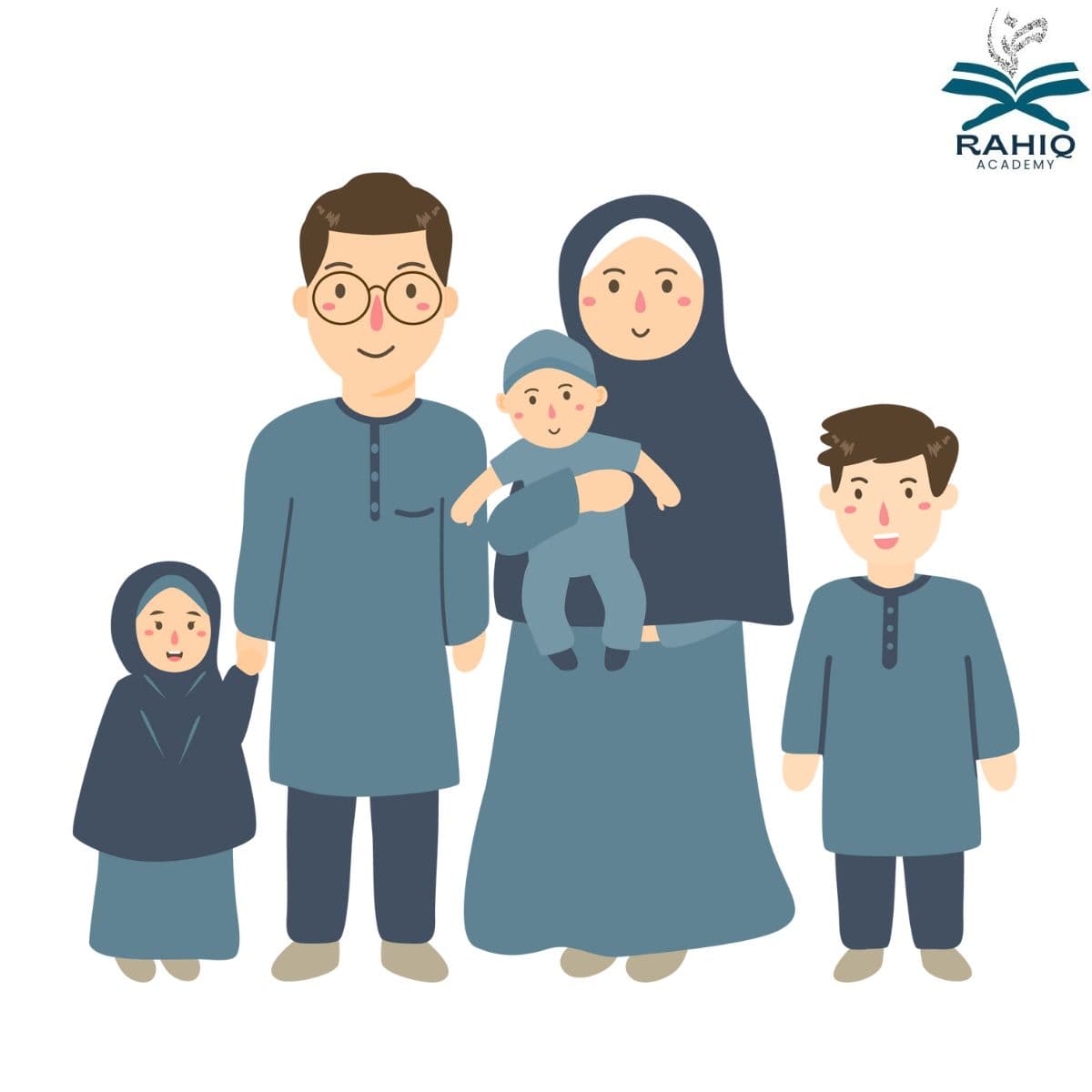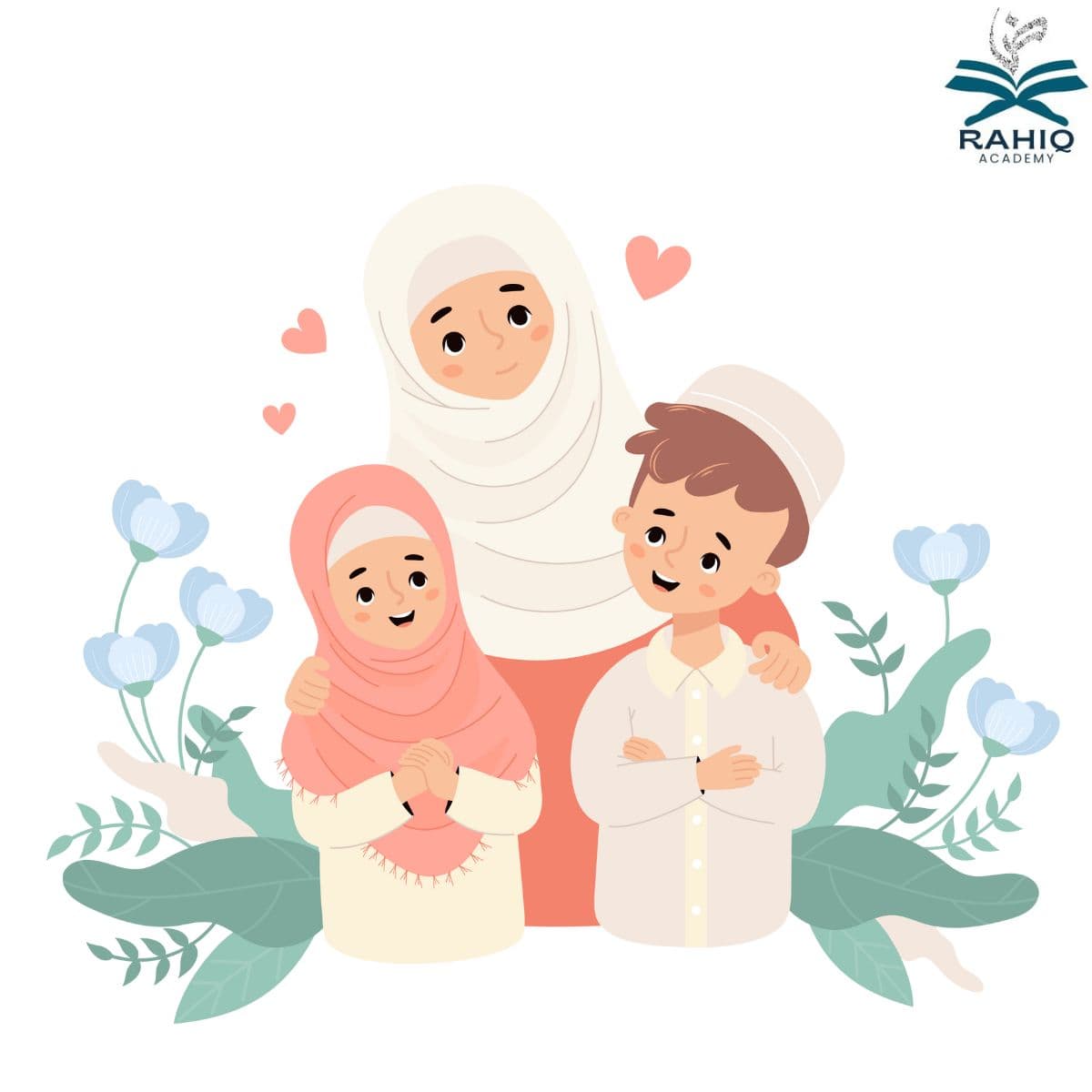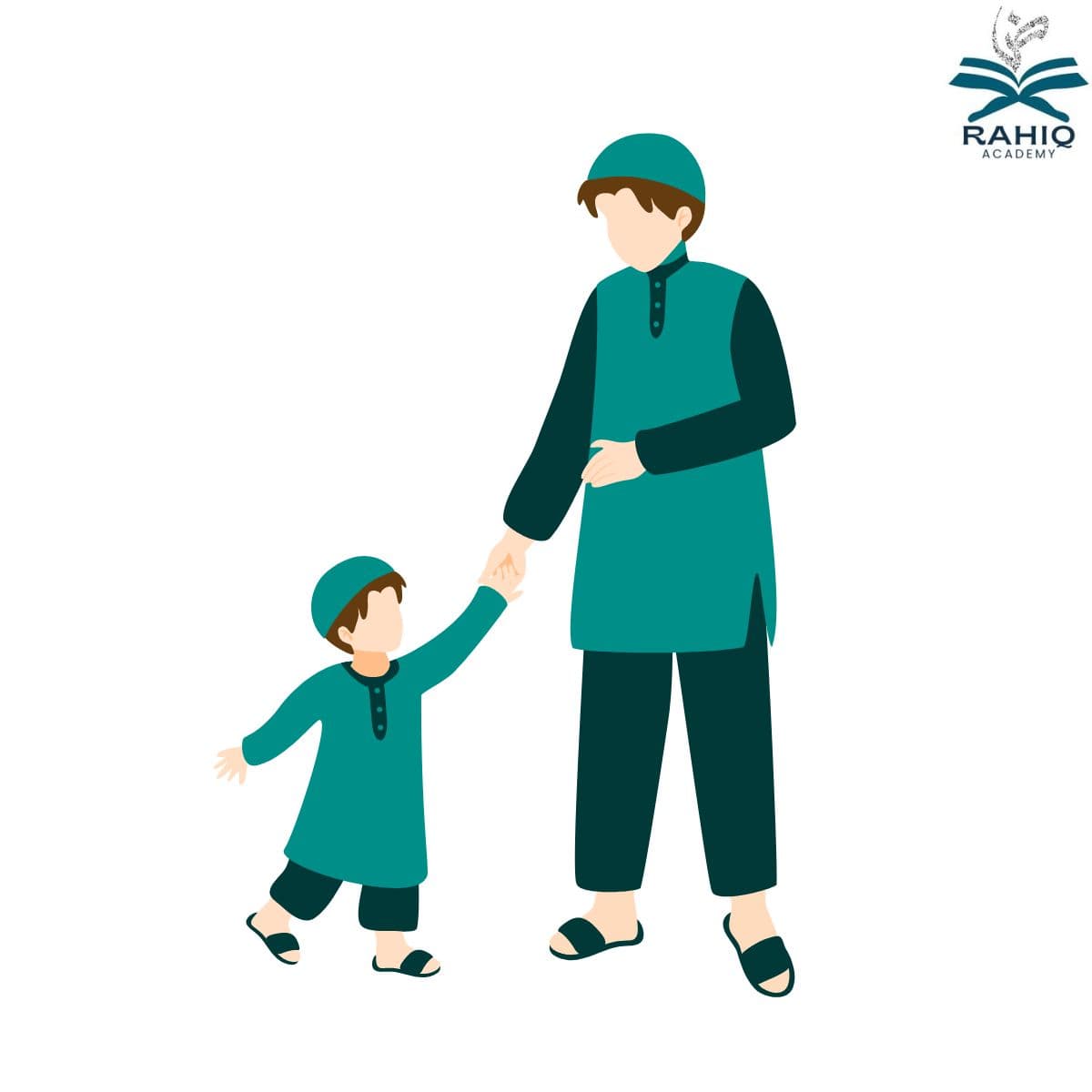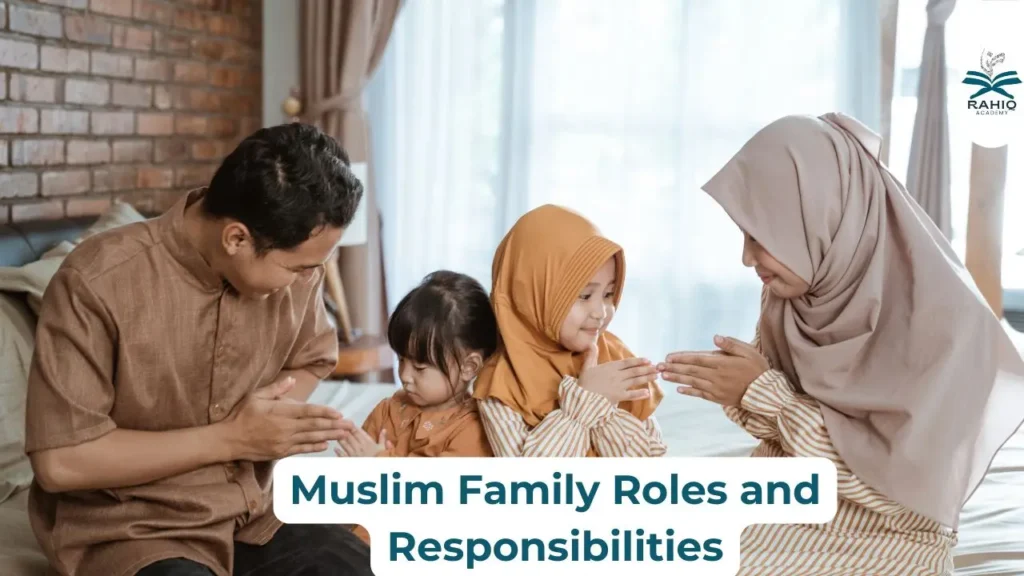The family unit has a special status in Islam. Healthy familial relations are characterized by love, compassion, mutual caring, and fulfilling one’s responsibilities towards other family members. Allah has endowed all family members – spouse, parents, children, and relatives – with certain rights and responsibilities to uphold the Islamic ideal of a stable and just society. In this comprehensive guide, we will explore Quranic wisdom and hadiths to understand Muslim family roles and responsibilities
Freedom of Thought and Faith
It’s important to acknowledge that Muslim families come in all shapes and sizes, reflecting the global nature of Islam. Cultural practices can vary widely, and interpretations of roles may differ. However, some core principles guide Muslim families:
- Freedom of Thought and Faith: Islam encourages independent thought and personal connection with Allah (God). Children are not expected to simply mimic their parents’ beliefs; they are encouraged to ask questions and develop their own understanding of Islam.
10 Principles of Islam
Here’s a brief overview of the 10 Principles of Islam that guide Muslim families:
- Belief in One God (Allah): This is the foundation of Islamic faith.
- Belief in Angels: Muslims believe in angels as creations of God who serve various purposes.
- Belief in the Prophets and Messengers: Muslims believe in a long line of prophets, including Abraham, Moses, Jesus, and culminating in Prophet Muhammad (peace be upon them all).
- Belief in the Divine Scriptures: Muslims revere the Quran as the literal word of God revealed to Prophet Muhammad. They also hold other scriptures in high regard, such as the Torah and the Gospel.
- Belief in the Day of Judgement: Muslims believe in a final judgement where people will be held accountable for their actions.
- Belief in Predestination and Free Will: Islam teaches that while God knows all, humans have free will to make choices.
- Performing the Five Pillars of Islam: These are the core practices of Islam: Shahadah (declaration of faith), Salat (prayer), Zakat (almsgiving), Sawm (fasting during Ramadan), and Hajj (pilgrimage to Mecca for those who are able).
- Importance of Good Character: Islam emphasizes living a moral life based on honesty, kindness, compassion, and justice.
- Importance of Knowledge: Seeking knowledge, both religious and secular, is highly valued in Islam.
- Importance of Community: Muslims are encouraged to build strong communities based on mutual support and cooperation.
These principles shape how Muslim families interact with each other and the world around them.
The Role of Parents in a Muslim Family

Parents play a crucial role in raising a well-rounded Muslim child. The Role of Parents in a Muslim Family include:
- Providing for the Family: Fathers are traditionally seen as the providers, ensuring the family’s financial security.
- Nurturing Faith: Both parents share the responsibility of instilling Islamic values and practices in their children. This includes teaching them about prayer, Quran recitation, and Islamic stories.
- Moral Guidance: Parents instill good character and ethical behavior in their children.
- Emotional Support: Creating a loving and supportive environment is vital for a child’s emotional well-being.
- Education: Ensuring their children receive a good education, both religious and secular, is a priority.
It’s important to note that these roles are not rigid. Modern Muslim families often share responsibilities more equally, depending on individual circumstances.
Parent-Child Interactions
Parent-Child Interactions and relationships in Islam are built on unconditional love, gentleness, and mutual understanding of roles and duties. Children have the right to education, moral guidance, healthcare, shelter, nourishment and a blessed upbringing from both parents (2:233, 17:31, 24:61).
Mothers bear great responsibility in shaping children’s faith and character from birth (66:6).
Respect for parents is paramount, even when they grow old and need care (17:23-24).
Allah rewards those who care for aging parents, and strongly warns against disobedience or harm towards them (29:8).
Parents should treat children fairly and avoid favoritism among siblings (4:135).
Fathers should be actively involved in parenting, as children need the love and guidance of both parents.
The Prophet (PBUH) kissed his grandchildren Hasan and Hussein saying:
“A person who is not kind to the young and does not respect the elders does not belong to our community.”
Parents should discipline children kindly, praising good behavior and correcting bad habits.
The Prophet (PBUH) said:
“Command your children to pray when they are seven years old, and discipline them if they do not do so when they are ten years old.”
(Abu Dawood)
Parents should spend quality time interacting, listening, playing, and bonding with children at all ages. When children mature, parents should guide but allow them more independence in making life choices.
The parent-child relationship in a Muslim family is built on respect, love, and guidance. Here are some key aspects:
- Respect for Elders: Children are taught to respect their parents and elders, showing them obedience and compassion.
- Open Communication: Open communication is encouraged, allowing children to ask questions and express their feelings
Role of mother in Muslim family

Traditionally, mothers are considered the “caretakers” of the household, responsible for:
- Raising Children: Mothers play a primary role in caring for and nurturing children in their early years.
- Home Management: Mothers often manage the household, including cooking, cleaning, and overseeing the daily routine.
- Emotional Support: Mothers provide emotional support and guidance for all family members.
However, Muslim mothers are not limited to domestic roles. They can pursue careers, participate in community activities, and hold leadership positions within their families and communities.
Role of father in Muslim family

Fathers are considered the “heads” of the household, traditionally responsible for:
- Financial Security: Providing for the family financially is a father’s primary responsibility.
- Leadership and Guidance: Fathers offer guidance and leadership on religious matters and family decisions.
- Protecting the Family: Fathers are seen as the protectors of the family, ensuring their safety and well-being.
Modern Muslim fathers are increasingly involved in child-rearing and share household responsibilities more equally.
The family unit has a blessed purpose and position within the Islamic social framework. Defined Muslim family roles and responsibilities endowed to men, women, parents, children, and relatives aim to foster healthy familial relationships and stable communities. Quranic wisdom provides guidance to resolve any family disputes in a just manner. Treating family members with love and mercy brings immense spiritual rewards.
Want to take your Arabic and Quranic studies to the next level?
Explore our comprehensive Online Courses designed for all skill sets!
Visit our Website to learn more, book Your Free Evaluation and enroll today.




